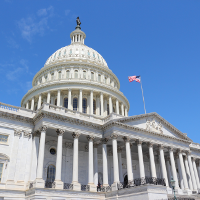The following post comes from Connor Sherman, a 2L at Scalia Law and a Research Assistant at CPIP.
 By Connor Sherman
By Connor Sherman
The field of intellectual property (IP) can sometimes be wrong in its approach towards promoting economic health, especially when that approach overlaps with antitrust law. Read more


 By Austin Shaffer
By Austin Shaffer By David Ward
By David Ward As we highlighted in previous posts in this series (see
As we highlighted in previous posts in this series (see  It is undeniable that the patent system has been
It is undeniable that the patent system has been  A group of judges, former judges and government officials, law professors and economists with expertise in antitrust law and patent law
A group of judges, former judges and government officials, law professors and economists with expertise in antitrust law and patent law  American businesses are suffering as foreign governments improperly use their antitrust laws to discriminate against American companies. Recently, the United States Chamber of Commerce
American businesses are suffering as foreign governments improperly use their antitrust laws to discriminate against American companies. Recently, the United States Chamber of Commerce  CPIP has released a new policy brief,
CPIP has released a new policy brief,